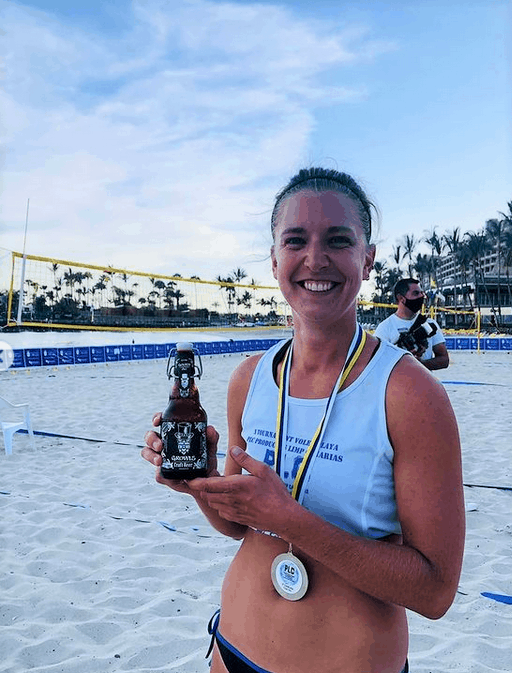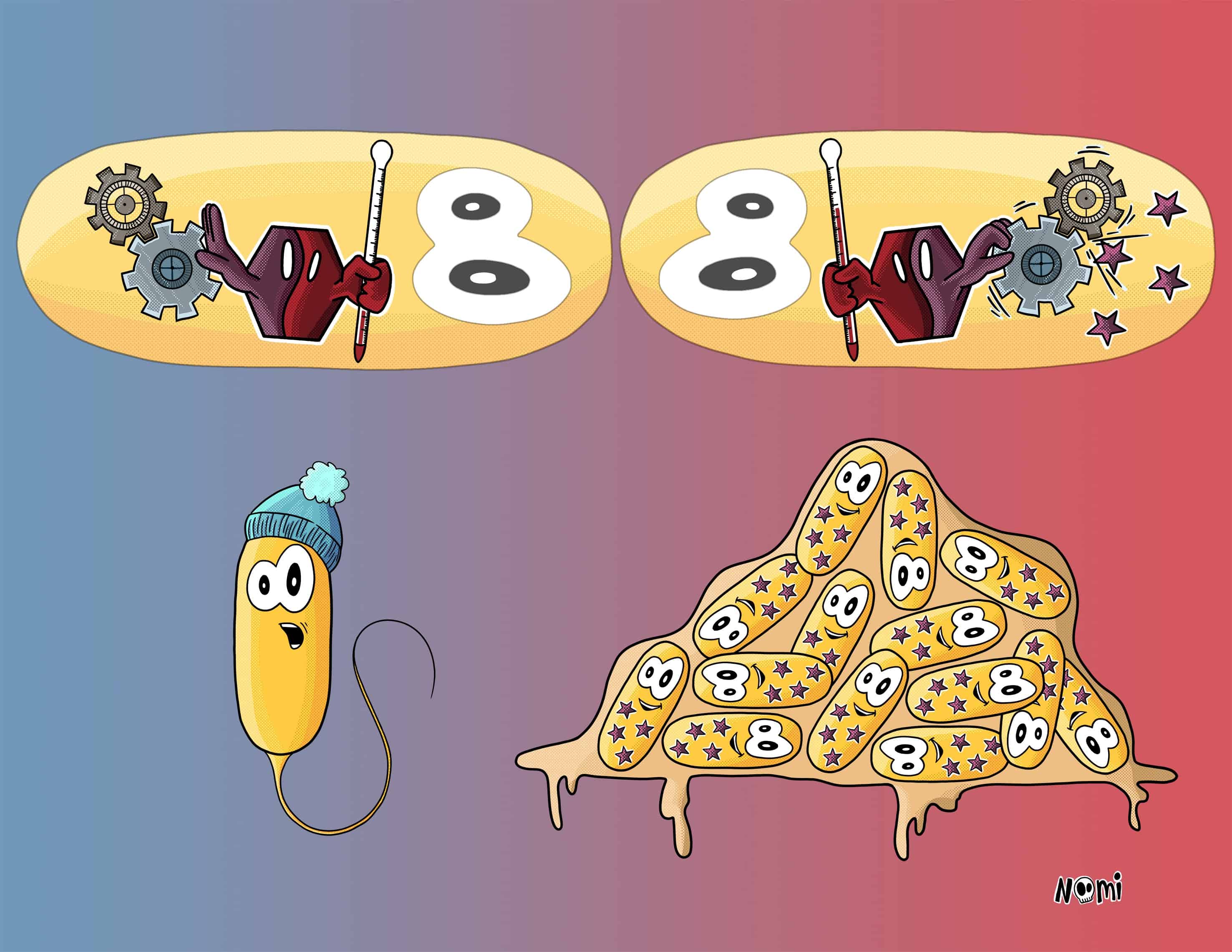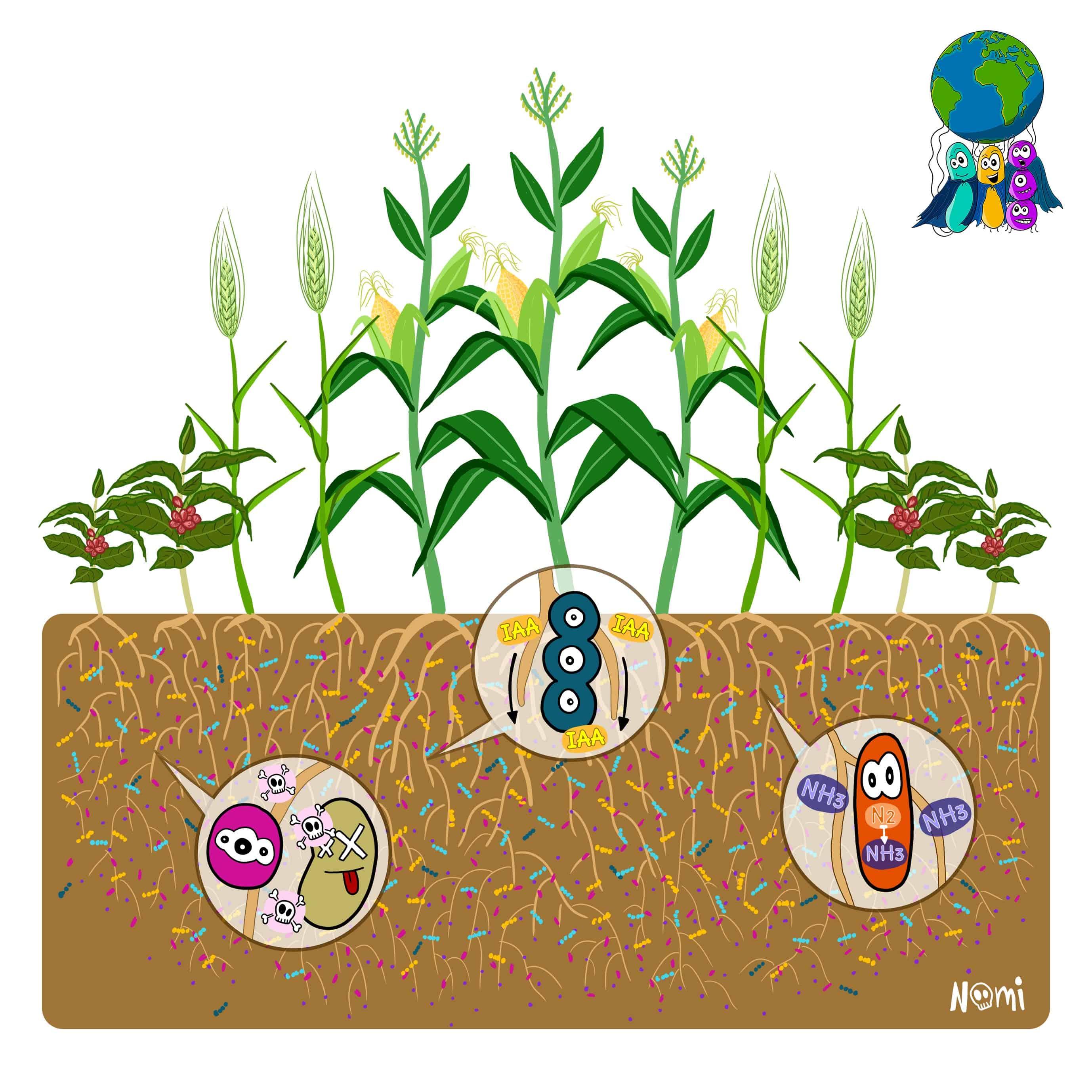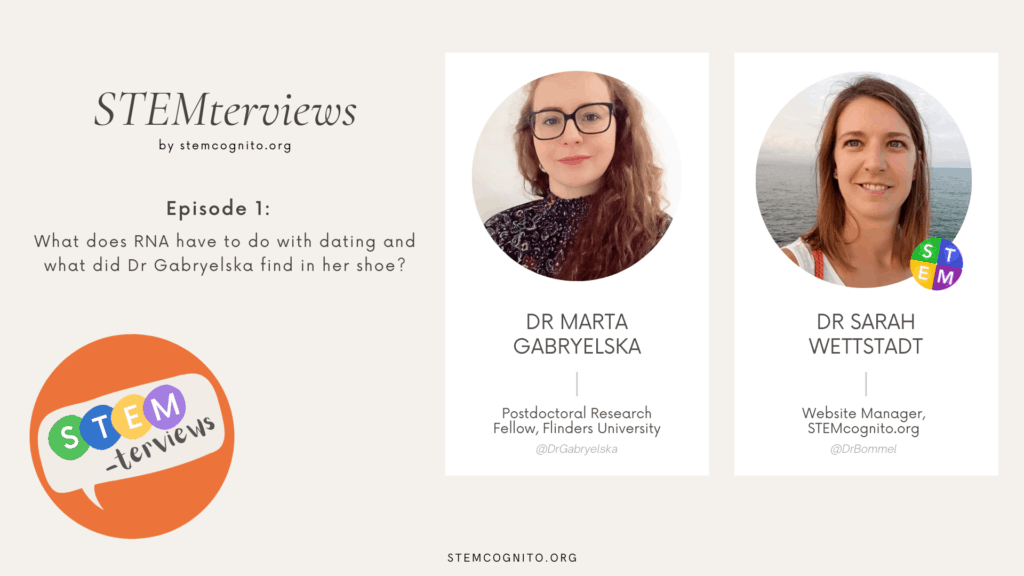This has been such an exciting month with many interesting posts and articles and new projects. I also finished this month quite successful in the sand by bringing home two silver medals (and a beer as a prize).

This was a great weekend full of beachvolleyball, sun and laughter. It is so important to get away from the laptop and e-mails once in a while to recharge my batteries and take care of my mental health.
But let’s look at the scientific content that we produced this month.
For microbe lovers
Fantastic write up by @micro_comms for UToday on a decade of our research revealing how bacteria sense heat to learn about their location (https://t.co/M1nwkg0GpX)
— Joe J. Harrison (@JoeJHarrison1) May 6, 2021
Thanks for this highlight @UCalgary and @DrBommel ! https://t.co/ecnVEHin95
We published an article about Joe Harrison’s study from the University of Calgary. He and his team discovered a new way of how bacteria learn about temperature changes in their environment. Some bacteria use a thermometer protein to know whether they are inside a human body so that they can switch on their virulence program.

Read the full article on UCalgary News “New research reveals bacteria sense heat to learn about their location“. And if you want your research project or publication to be featured in an online article, make sure to contact me (sarah-at-microbialcommunications.com).
We published several interesting blog posts this month on the FEMSmicroBlog. For example, in “Physiology determines where an organism thrives”, you can learn about how metabolic functionalities determine an organism’s ability to thrive in its environmental niches.
On BacterialWorld, we talk about how bacteria can take care of our environment and the planet’s health. Rachel explains how microbes can be used as biofertilizers to improve the soil’s nutrient availability so that plants grow better.

For academics
On STEMcognito, we started a new huge thing: A video interview series for scientists to chat about their research or any other STEM-related subject. So far, I talked to a few academics and we plan on publishing our STEMterviews on a regular basis.
The first STEMterview that is available is with our STEMcognito CEO, Dr Marta Gabryelska. She and I chatted about her research topic and her passion for science communication. If you want to learn more about why Marta founded STEMcognito, make sure to watch the full STEMterview.
For science communicators
This month, we finished our webinar series to “start your own science communication space (YOSS)”. Our participants created several new websites and blogs that communicate scientific topics, research articles or concepts.
So, check out these science website and blog and make sure to follow them on social media!
PGeeSciARt – AN AMALGAMATION OF SCIENCE AND ART
Bio-Worlds – Simplifying Bioscience
LuminiScience – Illuminating one concept at a time
Science & Technology Space – A place where scientific information is disseminated in your own language
I am currently working on collecting feedback from the webinar series to understand which points I did not address or which areas are still unclear. I then want to put together a comprehensive guide on starting a science website or science blog.
The aim of this guide will be to provide you with technical background, blogging strategies and design ideas to get you started with your own science communication project. If you have any questions or topics that you think I shall not miss, please let me know.
If you want to get started and learn more about how to address your audience correctly with your science communication activities, make sure to check out SciComm Society.

Fighting Covid19-misinformation
At STEMcognito, we are aware that a lot of misinformation about the Covid19-pandemic is circulating. And we know that with our platform we can reach many people worldwide. Hence, we started a Covid19-video series to explain relevant topics concerning the SARS-CoV-2 virus and the Covid19-disease.
Make sure to check out our library of videos on Covid19-related matters. Please also share them with anyone you think should learn more about the Covid19-vaccine or why the virus affects men and women differently.
Don’t forget to stay healthy and enjoy the good weather if it arrived at your place by now! Also, a good time to get your mind off the trouble of the last months.


